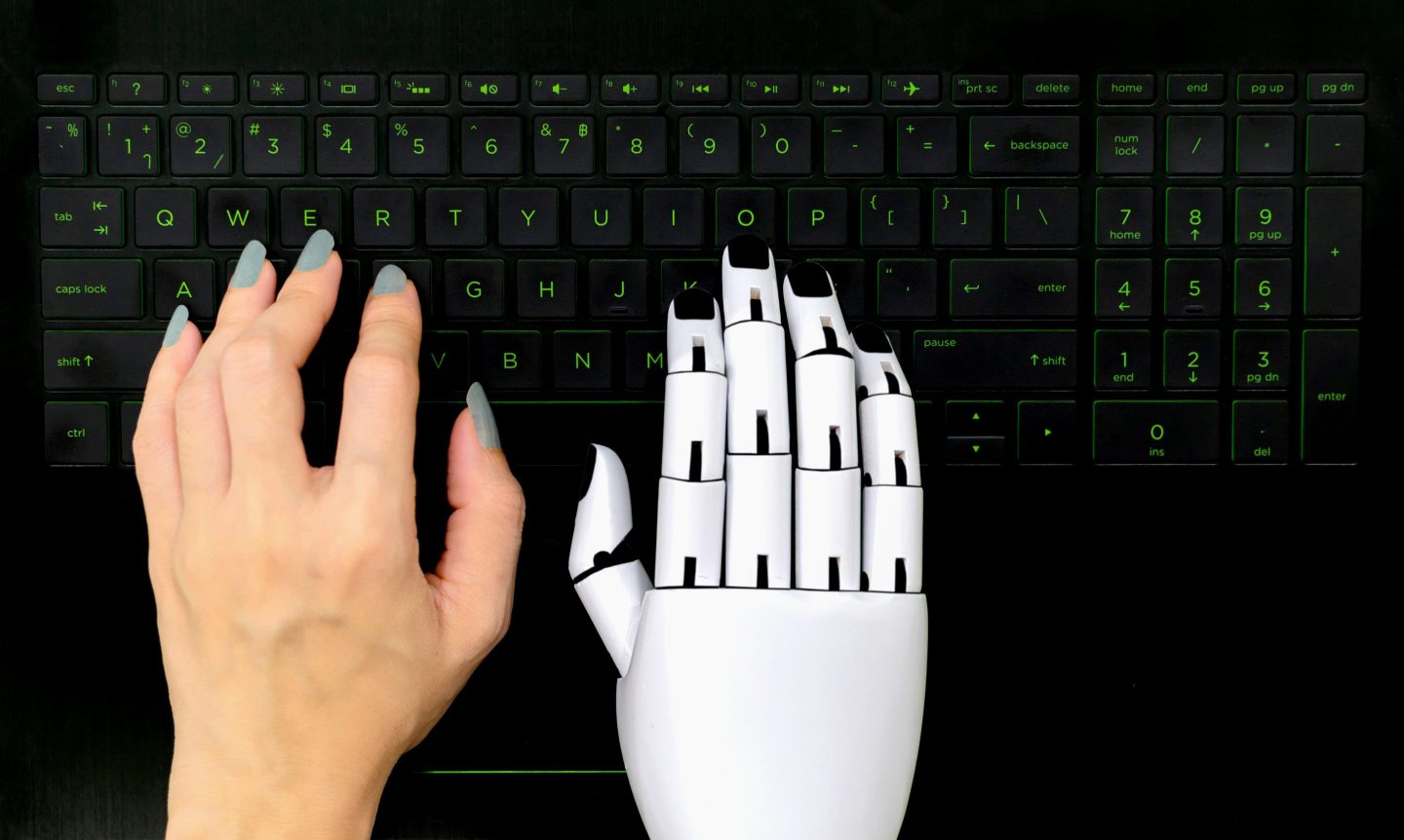
人工智能曾經只是科幻小說里虛構的概念,現在人工智能不僅變成了現實,而且在有些行業,人工智能技術被用于激發甚至在某些情況下取代人類的創造力,引發了這些行業的擔憂。
美國科幻雜志《Clarkesworld》收到大量使用與ChatGPT類似的生成式人工智能技術創作或改進的稿件之后,宣布停止接收投稿。
該雜志主編尼爾·克拉克上周在一篇博客中寫道: “2022年底,又出現了一波剽竊高潮,后來‘人工智能’聊天機器人開始引起更多關注,這讓剽竊者獲得一種新工具,也讓更多人嘗試這種‘副業’。”他還表示,人工智能生成的稿件數量激增,問題已經“失控”。
克拉克并未立即回復《財富》雜志的置評請求。
快速增長的趨勢
許多人希望在寫作或內容生成方面尋找創意協助,ChatGPT等生成式人工智能工具的廣泛應用和走紅,為他們提供了機會。但人們才剛剛開始探索如何使用生成式人工智能提高創造能力。
路透社在周二報道稱,來自紐約的銷售員布雷特·席克勒爾利用人工智能進行內容創作。他最近完全使用ChatGPT,通過輸入單個短語作為提示,寫了一本30頁的童書。這本書在“幾個小時內”就創作完成。席克勒爾成功自費出版,1月開始在亞馬遜(Amazon)發售。
席克勒爾對路透社表示:“可以預想,人們能利用這項技術成就自己的事業。”人們正在嘗試利用人工智能探索許多機會,這種趨勢從他的例子可見一斑。席克勒爾從未想過他能成為作家,直到有了ChatGPT的幫助。
在創意領域,生成式人工智能引發了更廣泛的道德辯論,人們開始爭論這項技術幫助生成的內容的所有權歸屬。ChatGPT等工具使用不同互聯網數據來源的資源進行培訓,這些資源包括人類對話和有版權保護的資料等。ChatGPT的所有者OpenAI并未對其平臺上生成的內容提起版權主張。但隨著越來越多的人將人工智能生成的內容視為自己的作品進行投稿,所有權問題依舊是一個灰色區域。
據路透社報道,在亞馬遜的Kindle商店,有200多本電子書將ChatGPT標記為作者或作者之一。盡管有這些已經披露的信息,但要確定一本書是否確實是人工智能技術的作品,依舊是一項艱難的任務。
幾個月來,科技媒體CNET嘗試利用人工智能技術撰寫解讀性文章和條列式文章。調查顯示,人工智能生成的文章存在錯誤,導致CNET不得不暫停使用人工智能技術進行寫作。
盡管人工智能生成的內容引發了激烈的所有權之爭,但科技巨頭仍在紛紛開發不同版本的類似工具。谷歌(Google)在本月早些時候公布了聊天機器人Bard,微軟(Microsoft)公布了經過完善的新版搜索引擎必應(Bing),其中將整合OpenAI的技術。但這些工具在演示時均出現了令人尷尬的錯誤,而且存在顯而易見的道德問題,這表明它們依舊處在初期。
OpenAI并未立即回復《財富》雜志在正常工作時間以外提出的置評請求。(財富中文網)
譯者:劉進龍
審校:汪皓
人工智能曾經只是科幻小說里虛構的概念,現在人工智能不僅變成了現實,而且在有些行業,人工智能技術被用于激發甚至在某些情況下取代人類的創造力,引發了這些行業的擔憂。
美國科幻雜志《Clarkesworld》收到大量使用與ChatGPT類似的生成式人工智能技術創作或改進的稿件之后,宣布停止接收投稿。
該雜志主編尼爾·克拉克上周在一篇博客中寫道: “2022年底,又出現了一波剽竊高潮,后來‘人工智能’聊天機器人開始引起更多關注,這讓剽竊者獲得一種新工具,也讓更多人嘗試這種‘副業’。”他還表示,人工智能生成的稿件數量激增,問題已經“失控”。
克拉克并未立即回復《財富》雜志的置評請求。
快速增長的趨勢
許多人希望在寫作或內容生成方面尋找創意協助,ChatGPT等生成式人工智能工具的廣泛應用和走紅,為他們提供了機會。但人們才剛剛開始探索如何使用生成式人工智能提高創造能力。
路透社在周二報道稱,來自紐約的銷售員布雷特·席克勒爾利用人工智能進行內容創作。他最近完全使用ChatGPT,通過輸入單個短語作為提示,寫了一本30頁的童書。這本書在“幾個小時內”就創作完成。席克勒爾成功自費出版,1月開始在亞馬遜(Amazon)發售。
席克勒爾對路透社表示:“可以預想,人們能利用這項技術成就自己的事業。”人們正在嘗試利用人工智能探索許多機會,這種趨勢從他的例子可見一斑。席克勒爾從未想過他能成為作家,直到有了ChatGPT的幫助。
在創意領域,生成式人工智能引發了更廣泛的道德辯論,人們開始爭論這項技術幫助生成的內容的所有權歸屬。ChatGPT等工具使用不同互聯網數據來源的資源進行培訓,這些資源包括人類對話和有版權保護的資料等。ChatGPT的所有者OpenAI并未對其平臺上生成的內容提起版權主張。但隨著越來越多的人將人工智能生成的內容視為自己的作品進行投稿,所有權問題依舊是一個灰色區域。
據路透社報道,在亞馬遜的Kindle商店,有200多本電子書將ChatGPT標記為作者或作者之一。盡管有這些已經披露的信息,但要確定一本書是否確實是人工智能技術的作品,依舊是一項艱難的任務。
幾個月來,科技媒體CNET嘗試利用人工智能技術撰寫解讀性文章和條列式文章。調查顯示,人工智能生成的文章存在錯誤,導致CNET不得不暫停使用人工智能技術進行寫作。
盡管人工智能生成的內容引發了激烈的所有權之爭,但科技巨頭仍在紛紛開發不同版本的類似工具。谷歌(Google)在本月早些時候公布了聊天機器人Bard,微軟(Microsoft)公布了經過完善的新版搜索引擎必應(Bing),其中將整合OpenAI的技術。但這些工具在演示時均出現了令人尷尬的錯誤,而且存在顯而易見的道德問題,這表明它們依舊處在初期。
OpenAI并未立即回復《財富》雜志在正常工作時間以外提出的置評請求。(財富中文網)
譯者:劉進龍
審校:汪皓
The world of artificial intelligence, once a concept confined to science fiction, is now not only a reality but a big worry in industries where the technology is being used to turbocharge—and in some cases replace—human creativity.
Clarkesworld, a U.S.-based science fiction magazine, has stopped accepting story submissions after receiving an overwhelming number created with or enhanced using generative A.I. technology like ChatGPT.
“Towards the end of 2022, there was another spike in plagiarism and then ‘AI’ chatbots started gaining some attention, putting a new tool in their arsenal and encouraging more to give this ‘side hustle’ a try,” Neil Clarke, the magazine’s editor, wrote in a blog post last week. He added that the issue had gotten “out of hand” with a meteoric rise in the number of A.I. submissions.
Clarke did not immediately return Fortune’s request for comment.
Fast-growing trend
The widespread adoption and popularity of generative A.I. tools like ChatGPT have opened doors for many seeking creative assistance in writing or content generation. But the magnitude of how people can use generative A.I. to improve their creativity is only just being explored.
One of those who adopted A.I. for content creation is New York–based salesman Brett Schickler, who recently used ChatGPT to write a 30-page children’s book entirely by providing simple one-phrase prompts, Reuters reported Tuesday. It was ready in a “matter of hours,” and Schickler managed to self-publish the book and sell it on Amazon in January.
“I could see people making a whole career out of this,” Schickler told Reuters. His example reveals how people are experimenting with A.I. to explore its many opportunities. Schickler never thought he could be an author until he was with the help of ChatGPT.
In the realm of creativity, generative A.I. has sparked a broader ethical debate on the ownership of content produced with the help of such technology. Tools like ChatGPT are trained on various internet sources, including human conversations and copyrighted materials. OpenAI, the owner of ChatGPT, does not claim a copyright over the content generated on its platform. But the question of ownership continues to be a gray area as more people submit A.I.-generated content as if it’s their own work.
On Amazon’s Kindle store, there are over 200 e-books that include ChatGPT as an author or coauthor, according to Reuters. Even with such disclosures, identifying whether a book is truly a product of A.I. technology can still be a task.
CNET, a technology publication, attempted to use A.I. to write explainers and listicles over a few months. An investigation revealed that it yielded stories with inaccuracies, forcing CNET to suspend using such technology in its writing endeavors.
Despite a heated debate on the ownership of A.I.-created content, tech giants are racing to develop versions of such tools. Google announced its chatbot, Bard, earlier this month, and Microsoft announced a new and improved version of its search engine, Bing, that will be infused with OpenAI’s technology. Both the tools had embarrassing instances of inaccuracies in their outputs at their demos—not to mention apparent ethical lapses—showing that they are still in their infancy.
OpenAI did not immediately return Fortune’s request for comment made outside its regular operating hours.






